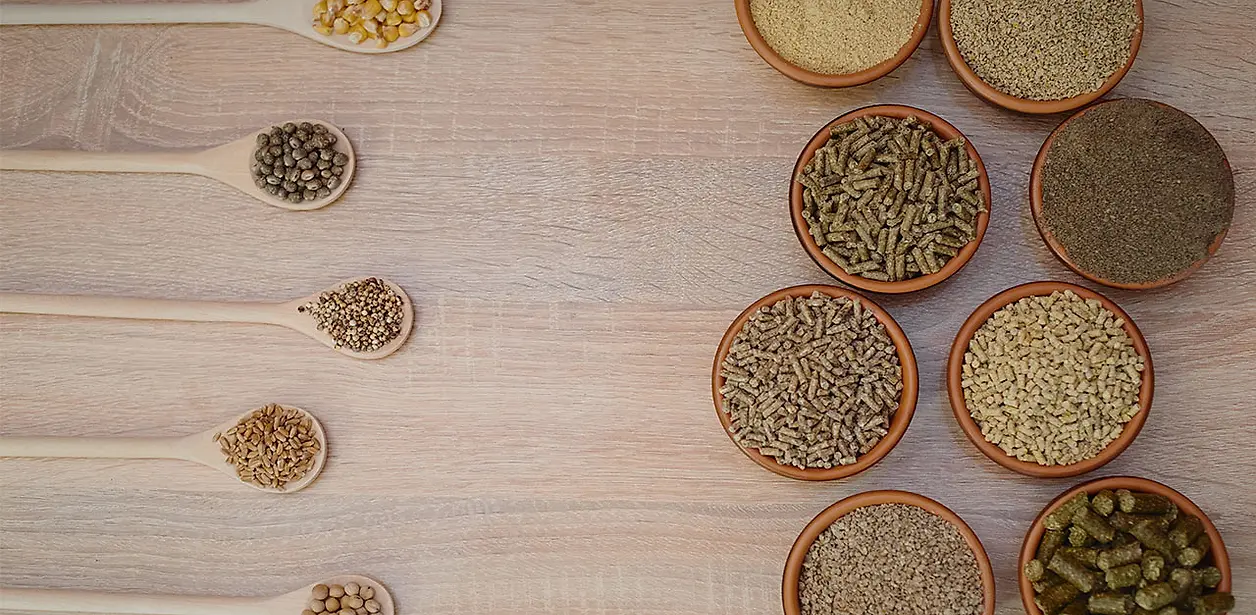ISO 66604 Moisture Profiling in Grass Silage
The ISO 66604 standard provides a method for moisture profiling in grass silage, which is essential for ensuring the quality and safety of animal feed. This service involves detailed analysis to monitor moisture content across various sections of the silage. Proper moisture management ensures that the silage remains free from mold and spoilage, thereby maintaining nutritional value and preventing potential health hazards for livestock.
Understanding moisture distribution within grass silage is critical because it influences fermentation processes and overall feed quality. Excess moisture can lead to anaerobic conditions conducive to mold growth, while insufficient moisture may result in poor preservation of essential nutrients. The ISO 66604 standard outlines precise methodologies to achieve accurate moisture profiling by using advanced analytical techniques such as near-infrared spectroscopy (NIRS) and gravimetric analysis.
Grass silage is a significant component of the diet for many ruminants, including dairy cows, beef cattle, sheep, and goats. By adhering to ISO standards like 66604, laboratories can provide reliable data on moisture content that helps ensure consistent product quality across different batches. This consistency is crucial for maintaining profitability within the feed industry and meeting regulatory requirements.
The process involves collecting representative samples from various depths of the silage pile, ensuring each sample reflects accurate moisture levels throughout the entire batch. Samples are then prepared according to ISO guidelines before being analyzed using appropriate equipment calibrated to ISO specifications. The results provide insights into potential areas where adjustments might be needed for optimal preservation practices.
Accurate moisture profiling supports not only immediate quality control but also long-term strategic planning related to feed production and supply chain management. It enables better decision-making regarding storage conditions, transportation logistics, and inventory management—all aimed at optimizing resource use while minimizing waste.
In summary, implementing ISO 66604 moisture profiling in grass silage ensures compliance with internationally recognized standards, promoting safer and more efficient feed production practices. This service is indispensable for quality managers looking to enhance their operations' reliability and reputation within the food & feed testing sector.
Why It Matters
The importance of moisture profiling in grass silage cannot be overstated, especially given its role as a key ingredient in animal feeds. Properly managed moisture content is vital for preserving nutritional integrity and preventing spoilage which could otherwise lead to health issues among livestock.
Ensures consistent feed quality: Accurate moisture profiling helps maintain uniformity across different batches of grass silage, ensuring that every load meets the required specifications for animal nutrition.
Prevents mold growth: Excess moisture provides an ideal environment for molds to flourish; by monitoring moisture levels closely through ISO 66604 compliant methods, potential problems can be identified early and addressed promptly.
Maintains nutritional value: Keeping the right balance of water ensures that essential vitamins, minerals, proteins, and other nutrients remain intact throughout storage and feeding processes.
From a broader perspective, adhering to ISO standards like 66604 not only enhances operational efficiency but also contributes positively towards sustainability goals by reducing unnecessary waste due to improper handling or storage practices.
Why Choose This Test
Selecting the right testing method for grass silage is crucial in achieving reliable results that meet both internal quality control standards and external regulatory requirements. The ISO 66604 moisture profiling technique offers several advantages over other conventional methods:
Precision: Near-infrared spectroscopy (NIRS) provides highly accurate readings, making it easier to detect even minor variations in moisture content.
Efficiency: This non-destructive approach allows for rapid testing without damaging the sample, thus preserving its integrity for further analysis if needed.
Compliance: By aligning with internationally recognized standards, laboratories demonstrate their commitment to best practices and ensure consistent outcomes across multiple locations.
Moreover, this service supports continuous improvement efforts by providing actionable insights into current operations. Regular assessments enable adjustments where necessary, ensuring optimal performance and adherence to industry norms.
Use Cases and Application Examples
| Application Case | Description |
|---|---|
| Quality Assurance | Monitoring moisture levels helps maintain consistent quality across different batches of grass silage. |
| Risk Management | Detecting high moisture content early prevents mold growth and associated health risks for livestock. |
| Nutritional Optimization | Precise moisture profiling ensures that the feed contains optimal levels of essential nutrients, supporting animal health and productivity. |
| Supply Chain Efficiency | Accurate data from ISO 66604 compliant tests improves decision-making regarding storage conditions and transportation logistics. |
Dairy Farms: Ensuring consistent moisture content in silage fed to dairy cows enhances milk production efficiency while minimizing waste.
Cattle Feed Manufacturers: Regular monitoring of grass silage batches helps maintain product quality, reducing the risk of recalls and improving customer satisfaction.
Animal Nutritionists: Detailed analysis provides valuable input for formulating balanced diets that support animal health and performance.
The versatility of this service extends beyond individual farms or companies; it plays a critical role in shaping industry standards and promoting best practices globally.





